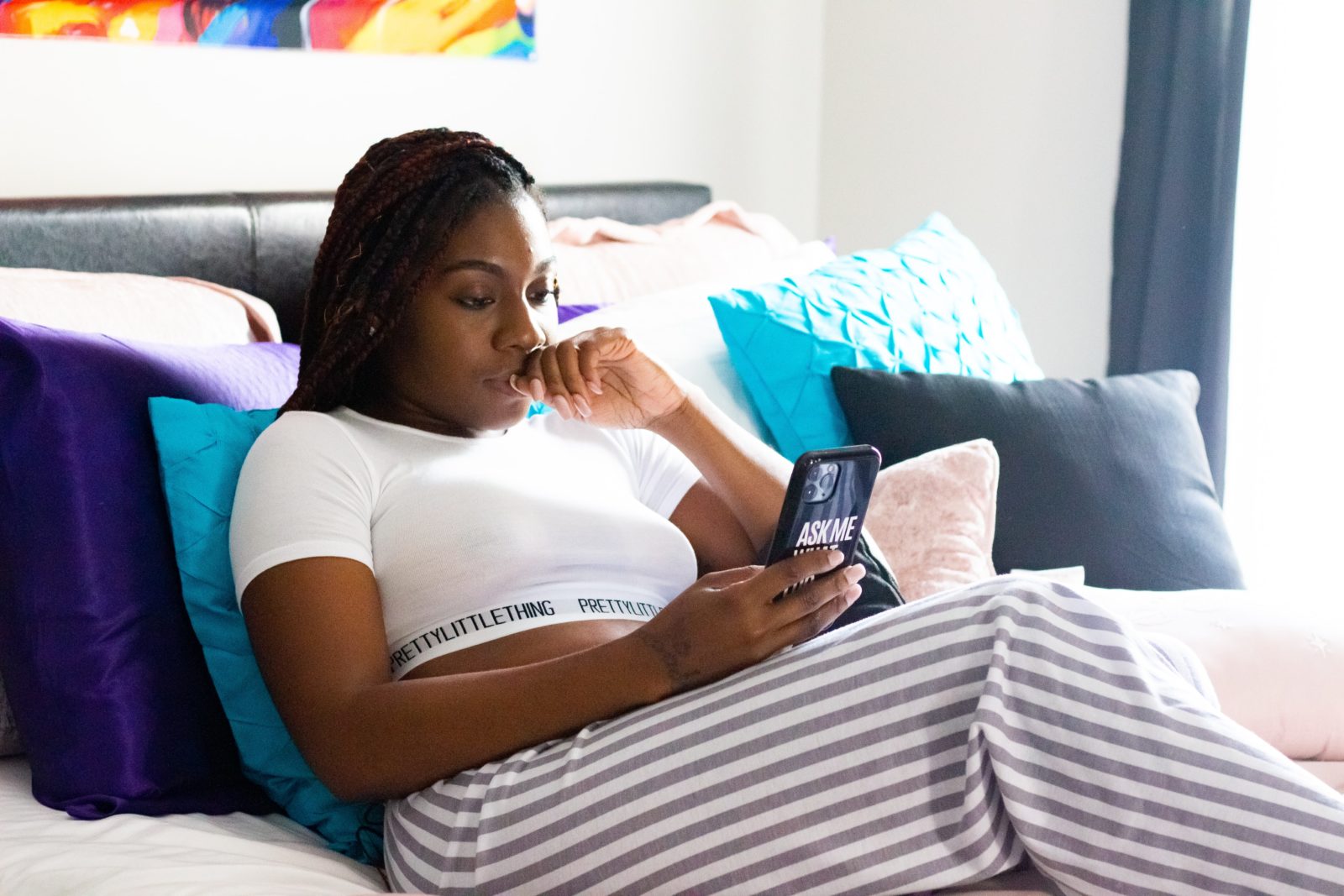Feel Like You’re Never Enough? Ask Yourself These Five Questions

Dr. Ashley Solomon is a clinical psychologist and the founder…
One thing that’s become abundantly clear over the past year is that, even in the midst of the world falling apart, many of us struggle to cut ourselves some slack. Instead of meeting ourselves with self-compassion, we’re continuing to feel like we’re just never doing enough.
This “not-enoughness” can be toxic to our sense of ourselves, our identities, and our relationships with others. It tends to creep into all the crevices and leave us feeling depleted and dissatisfied in our lives.
Most of us who struggle with not feeling like we’re enough have tried everything we can think of to feel better, and the irony is that when the strategies don’t work, we feel even worse about ourselves.
So instead of adding one more thing to our to-list, consider these questions to give you more insight into your experience.

How long have I been experiencing this feeling?
It’s helpful to recognize whether these feelings have been long-standing or more recent. If we notice that they’ve developed or ramped up lately, we can be curious about what is going on in our life that might be contributing to this insecurity. Big life transitions, for example, definitely have the potential to throw our confidence for a loop. We’re having to learn a new way of living and our core identity can get shaken.
However, if we’ve seen this pattern in ourselves over a long period of time, even for as long as we can remember, that signals to us that there might be more significant work to do to uncover the roots. This doesn’t have to mean years of therapy, but it might take a more targeted investment in our self-understanding.
Are my expectations of myself accounting for what’s going on around me?
One thing I’ve noticed as a psychologist through the pandemic is that while women are saying that they have tried to go easier on themselves in this time of global crisis, they haven’t actually loosened the demands all that much. In fact, many of us have expected that with lighter social calendars, we should be more productive in other ways and make huge progress on ourselves or our goals. In doing so, we totally fail to acknowledge that we are not just living through a challenging time, but that those challenges are requiring so much of our mental and emotional energy.
Even outside of a pandemic, we rarely zoom out and give ourselves enough credit for the things that we are juggling and managing in our lives. Considering what we are effectively managing can help refocus our attention on what’s working rather than what’s not. And adjusting our expectations for ourselves allows us to be more realistic and compassionate to ourselves.
What are my benchmarks for “enough”?
So often we have ideas about what we should be doing that have never actually been examined. When we consider where we developed our standards for ourselves, we recognize that they are shaped by influences outside of our awareness. Our ideas about who we expect ourselves to be often started shaping in our childhood, either because we wanted to model something that we saw, or because we wanted to make sure we didn’t end up like the people around us. In either case, our own expectations started from a place of reaction to the people in our lives. Once we’ve grown into adults, we tend to surround ourselves with people and influences that continue this pattern. It’s worth asking ourselves who are biggest influencers are, and whether those are people who represent what we actually most value.
Who benefits from me feeling not enough?
When we are struggling with a sense of low self-worth, we can find ourselves more internally-focused and fail to look at the bigger picture. When we do, we can start to see that much of our sense of not-enoughness might be culturally conditioned.
Ask yourself literally, who or what achieves some benefit from my insecurity? Hint: there is always something there. If I’m dissatisfied with my body and pursue weight loss, the diet industry profits off my self-hatred. If I feel like I’m always falling short at work and so regularly put in extra hours, my company and our economy profits off my extra labor. If I feel less than, I’m likely to make myself and my voice smaller, allowing others to make the impact and decisions I should be making.
Shifting our perspective to take a cultural look can help us recognize that often the problems we think are in ourselves are actually in our society.

Am I willing to acknowledge and talk about this?
Simply putting words to our insecurities can actually help us liberate from them. There’s a saying that what we can name, we can tame, and this definitely applies to our sense of “not-enoughness.” One of the reasons that this is so helpful is that we can start to recognize the problem outside of our own head, and if we talk about it with others, we can realize how common these feelings really are.
Talking with a partner or friends can be a great start. If you find yourself frequently bothered by these feelings or that they are interfering with your life, talking to a professional can help you develop the insight and skills to change course.
Dr. Ashley Solomon is a clinical psychologist and the founder of Galia Collaborative, an organization that helps purpose-driven women elevate their impact and mental wellness through therapy, coaching, and content. She blends her scientific acumen, her warm style, and her real-life wisdom to help people during challenge points in their lives. She's committed to busting the stigma of mental health and helping people heal, grow, and lead.


